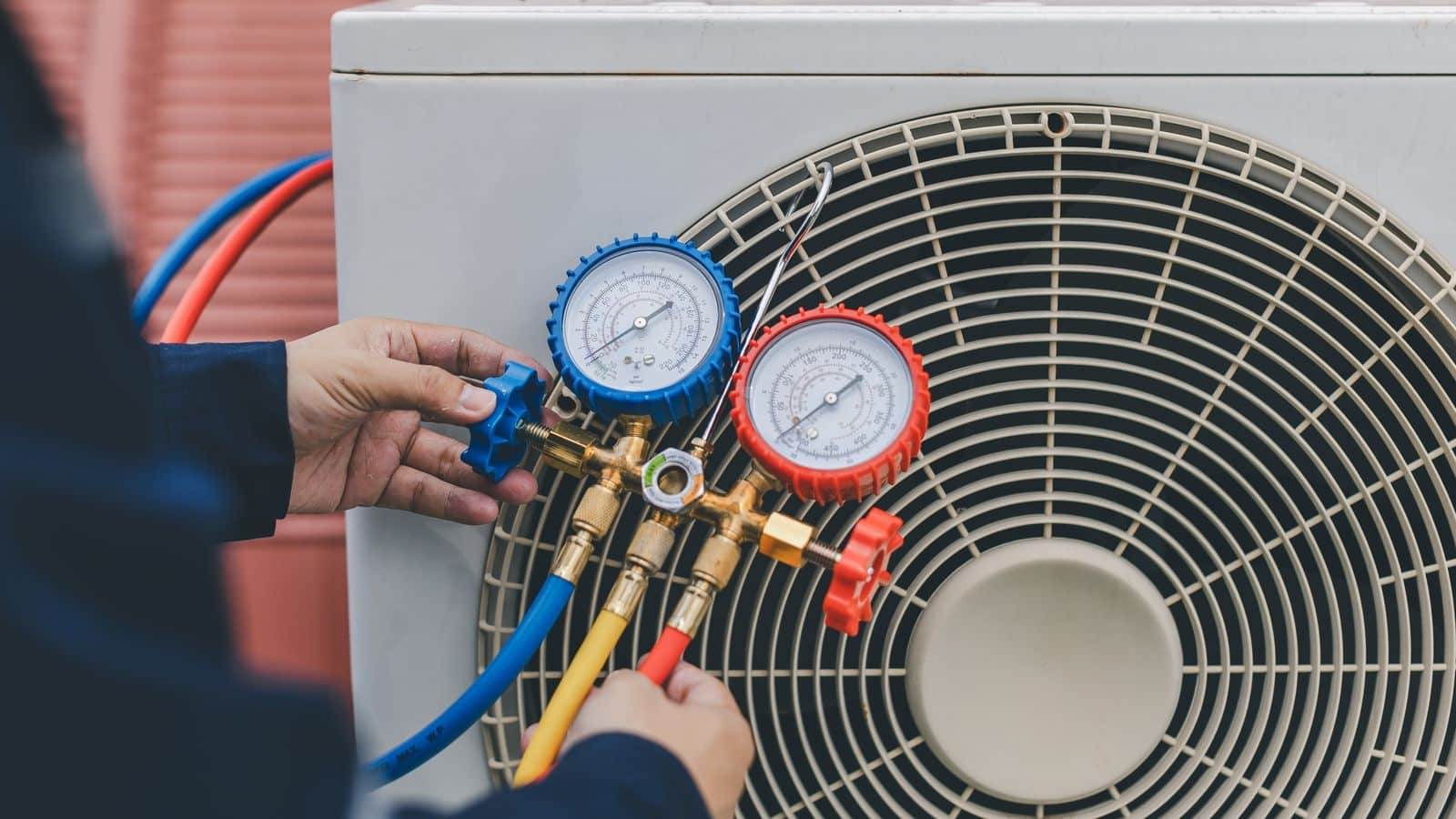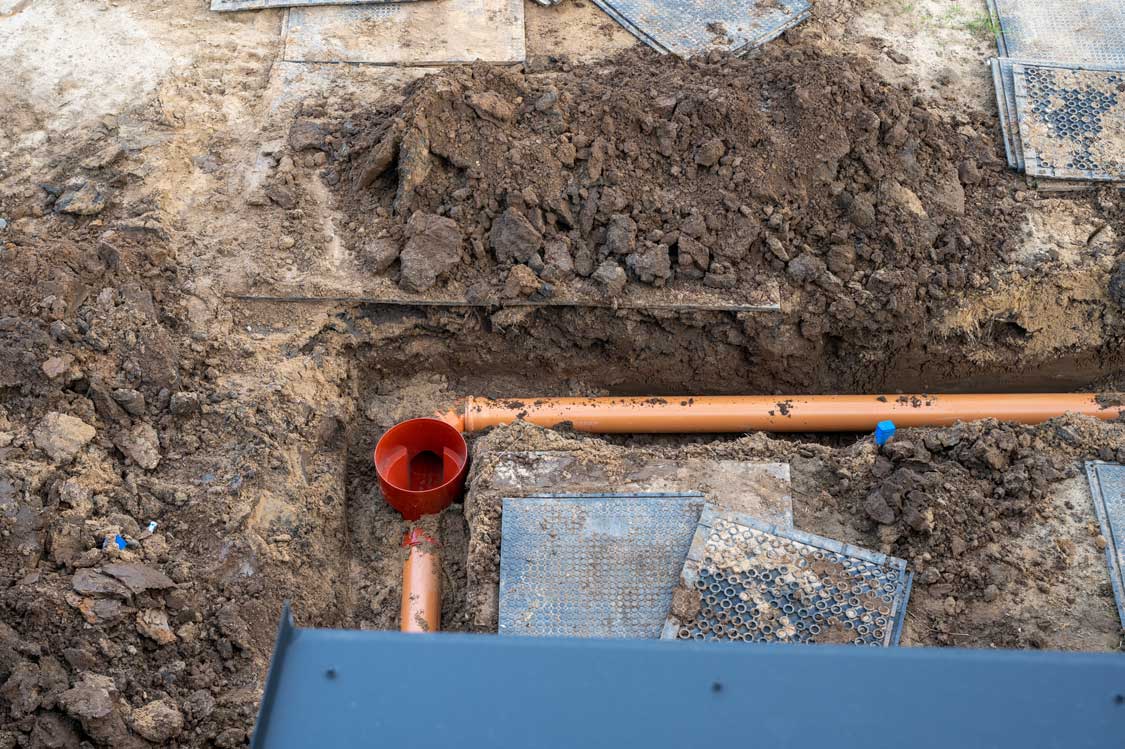Air conditioners work nonstop to keep homes comfortable, but every system eventually reaches a point where repairs no longer make sense. In Colorado’s dry climate, AC units typically last 10 to 12 years with proper maintenance. Dust, dirt, and extreme temperature swings wear down components, reducing efficiency and shortening lifespan.
When an air conditioner starts showing signs of failure, homeowners must decide whether to repair or replace the AC unit. The right choice can lower energy costs, improve cooling performance, and prevent unexpected breakdowns.
5 Signs That Your AC Unit May Need Replacement
No air conditioner lasts forever. Over time, parts wear out, and performance declines. Certain warning signs indicate that repairs may no longer be the best option.
- Frequent Breakdowns: If an air conditioner needs repairs multiple times a year, service calls and replacement parts quickly become expensive. Breakdowns often happen during the hottest days of summer when the system is under the most stress. If repairs fail to keep the unit running reliably, replacing it may be the smarter long-term choice.
- Rising Energy Bills: A sudden increase in energy costs without any major changes in usage suggests the air conditioner is struggling. Older systems lose efficiency as internal components wear down, forcing them to work harder and run longer to cool the home. A new high-efficiency air conditioner can significantly lower monthly utility bills, making replacement a cost-effective investment.
- Inconsistent Temperatures or Weak Cooling: A well-functioning air conditioner should evenly cool the entire home. If some rooms feel too warm while others are too cold, the system may have restricted airflow, worn-out components, or a failing compressor.
- Use of Outdated Refrigerant (R-22): AC units manufactured before 2010 may still rely on R-22 refrigerant, which is no longer produced due to environmental concerns. As supplies dwindle, the cost of refilling an older system with R-22 has skyrocketed. If an air conditioner needs frequent refrigerant refills, upgrading to a newer model that uses R-410A or other modern refrigerants eliminates this ongoing expense.
- Age of the Unit Exceeding 10 Years: Once an air conditioner reaches 10 years or older, efficiency declines, and mechanical failures become more frequent. While well-maintained units may last longer, older systems can’t match the reliability, features, and efficiency of modern air conditioners. Replacing an aging unit before costly repairs pile up can provide better performance and long-term savings.
Factors to Consider When Deciding to Repair or Replace
Choosing between AC repair and replacement requires weighing costs, efficiency, and long-term value.
Evaluate Repair Costs
Repair costs should always be compared to the remaining lifespan of the system. The 5,000 Rule helps determine whether a repair makes financial sense:
- Multiply the repair cost by the system’s age.
- If the result is more than $5,000, replacement is the better option.
For example, a 12-year-old AC unit with a $600 repair bill totals $7,200 using this formula, making replacement the more practical choice. If the air conditioner is less than five years old and the repair is minor, fixing it may still be worthwhile.
Energy Efficiency and Savings
Modern air conditioners provide better cooling while using less energy. Newer models include high-efficiency compressors, variable-speed motors, and higher Seasonal Energy Efficiency Ratio (SEER) ratings.
- Older systems may have SEER ratings as low as 10-13, while today’s high-efficiency models reach SEER 20 or higher.
- Replacing an old unit with a high-SEER model can cut energy use by up to 30%, reducing electricity costs.
- Many utility companies offer rebates or tax incentives for upgrading to energy-efficient AC units, adding to the savings.
Lower energy bills, improved cooling performance, and a reduced environmental impact make replacing an outdated system a smart financial decision.
Future Plans and Home Value
Plans for the home also play a role in whether to repair or replace an air conditioner.
- Homeowners planning to stay long-term: A new AC unit provides years of reliable cooling without the hassle of frequent breakdowns.
- Those planning to sell soon: A new HVAC system increases home value and appeals to buyers. Many buyers look for homes with updated heating and cooling systems, making AC replacement a strong selling point.
The Importance of Proper Electrical Capacity
Many older homes in Aurora and Greater Denver were built with 150-amp or lower electrical service, which may not support modern air conditioners. A new high-efficiency AC unit with a variable-speed motor or smart thermostat integration may require more power than the current electrical panel can handle.
Homes built before 1995 often have outdated electrical panels that lack the capacity for newer HVAC systems. Upgrading the electrical panel ensures safe operation, prevents circuit overloads, and allows for the installation of advanced ARC and GFCI breakers, which improve fire and shock protection.
Benefits of Replacing Your AC Unit
A new air conditioner offers more than just better cooling—it improves comfort, reliability, and energy efficiency.
- Lower Energy Bills: New technology allows modern systems to cool more effectively while using less power, reducing electricity costs.
- Better Indoor Comfort: Features like smart thermostats, variable-speed motors, and improved humidity control create even temperatures and better air quality.
- Fewer Repairs: Frequent breakdowns become a thing of the past, and warranties provide added protection.
- Eco-Friendly Operation: New systems use environmentally safe refrigerants and consume less energy, reducing emissions and qualifying for rebates and tax credits.
Why Regular Maintenance Matters
Routine maintenance helps air conditioners last longer and prevents sudden failures.
- Prevents Summer Breakdowns: AC failures often happen during peak summer heat when systems work hardest. Regular checkups catch minor issues before they turn into major problems.
- Improves Efficiency and Lifespan: Cleaning coils, replacing filters, and checking refrigerant levels keep the system running smoothly.
- Protects Expensive Components: The compressor is one of the costliest parts to replace. Regular maintenance helps prevent major mechanical failures that could force an early replacement.
Trust the Professionals at Done! for Your AC Needs
Deciding whether to repair or replace your AC isn’t always easy. That’s why Done! Plumbing, Heating, Cooling & Electric provides honest, expert advice tailored to your home and budget.
- Thorough Inspections: Our certified technicians evaluate your system and give clear, straightforward recommendations.
- Professional Installations: We install high-efficiency air conditioners built for Colorado’s climate, ensuring reliable cooling and energy savings.
- Flexible Financing: Affordable options make upgrading easier than ever.
- Ongoing Care: With our Care Club membership, you’ll enjoy regular maintenance, priority scheduling, and special savings—keeping your AC in peak shape for years to come.
Take the guesswork out of home cooling. Schedule online today and let Done! keep your home comfortable all summer long.







